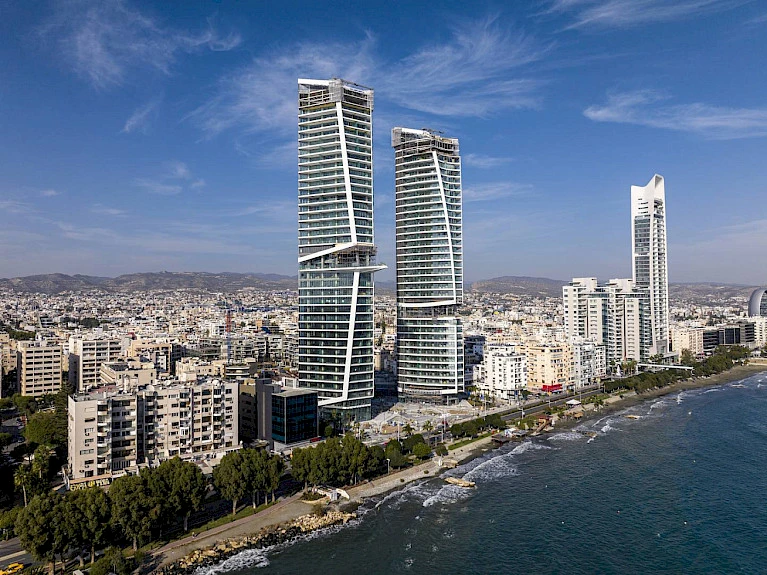Life in Limassol: relocation, taxes, community, and opportunities
- International Community and Migration History
- Everyday Life and Culture
- Economy and Taxes
- Attitude of Local Residents
- Pros and Cons of Living in Limassol
- Conclusions
International Community and Migration History
Limassol is the second largest city in Cyprus and the island's main center for business, culture, and tourism. The population, including suburbs, exceeds 200,000 people. Thanks to its comfortable climate and stable economy, the city has become attractive to expats, entrepreneurs, IT specialists, and investors from around the world.
Limassol has gone through several stages of migration growth:
- 1990s–2000s: the first foreign investors opened banks, offices, and schools, forming the business infrastructure.
- 2010s: “citizenship by investment” programs attracted wealthy families and professionals.
- After 2022: the city became a hub for IT and digital industries, turning into an Eastern Mediterranean center for technology and innovation.
Everyday Life and Culture
Life in Limassol combines European comfort with a Mediterranean atmosphere. The city has international schools (British, American, IB, French), private clinics, and offices of major companies. It is easy to balance work with leisure by the sea.
The cultural life is vibrant year-round: concerts, festivals, theater performances, stand-ups, and gastronomic events. In 2025, the city hosted the Cyprus Diaspora Forum, bringing together over 120 speakers and 250 investors from different countries — confirming Limassol’s status as an international innovation center.
Economy and Taxes
Cyprus is considered one of the most tax-friendly jurisdictions in Europe. Limassol is the financial and technological capital of the island, home to IT companies, startups, investment funds, and service centers.
Income tax rates:
- Up to €19,500 — 0%
- €19,501–28,000 — 20%
- €28,001–36,300 — 25%
- €36,301–60,000 — 30%
- Above €60,000 — 35%
New residents can benefit from the Non-Domicile regime, exempting them from taxes on dividends, capital gains, and inheritance. Corporate tax is 12.5%, and under the IP Box system for IT companies, the effective rate can be reduced to 2.5%.
Residency can be obtained via:
- 183-day rule, or
- 60-day rule — if owning property and having a source of income on the island.
The banking system is stable, but since 2022 stricter controls on the source of funds have been introduced. It is recommended to consult licensed advisors when opening accounts or registering a business.
Attitude of Local Residents
Local residents are known for their openness and hospitality. Limassol has a multicultural atmosphere — you can hear English, Greek, French, Italian, and other languages on the streets. Expats feel comfortable: Cypriots appreciate the contribution of foreigners to the economy and cultural exchange.
Meanwhile, the government gradually strengthens financial sector regulation to maintain transparency and trust with international partners.

Pros and Cons of Living in Limassol
Advantages:
- Over 300 sunny days a year and a mild climate.
- Transparent and favorable tax system.
- High level of safety and quality healthcare (GESY).
- International community and well-developed infrastructure.
- Wide choice of schools and international education programs.
- Rich cultural and gastronomic life.
Disadvantages:
- High cost of living — rent and groceries above the EU average.
- Bureaucracy and bank checks.
- Limited public transport.
- Slower pace of life compared to megacities.
- Cold winters in houses without heating.
Conclusions
In 2025, Limassol remains one of the most attractive cities in the Mediterranean for living, working, and investing. It combines comfort, safety, low taxes, and a developed international environment.
The city is suitable for long-term residence, remote work, and business activities. For a successful relocation, it is important to arrange residency in advance, plan a financial strategy, and choose the right neighborhood. Start with consultation from specialists who will help select a district, obtain a residence permit, and open a bank account.
Limassol is a city where you can live by the sea, advance your career, and enjoy European quality of life.

